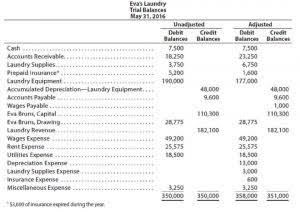

As of the most recent information available, the flat individual income tax rate in Illinois is 4.95%. This means that whether you earn $10,000 or $100,000, you will be taxed at the same rate of 4.95%. However, it is important to note that Illinois is considering transitioning to a graduated income tax system, where different tax rates would apply to different income levels.

Supporters of a graduated income tax system argue that it would allow for a more progressive tax structure, where higher-income individuals would pay a higher tax rate than lower-income individuals. It is important for residents and unearned revenue businesses in Illinois to stay informed about any potential developments in state tax policies that may impact their financial planning and obligations. Illinois’ corporate income tax is a business tax levied on the gross taxable income of most businesses and corporations registered or doing business in Illinois. The Illinois corporate income tax is the business equivalent of the Illinois personal income tax, and is based on a bracketed tax system.

Missing these payments can lead to penalties and interest, making proactive planning essential. The concepts of Effective Tax Rate and Marginal Tax illinois income tax rate Rate are pivotal in understanding the intricacies of taxation. The Effective Tax Rate represents the average rate at which your income is taxed, providing a broad view of your overall tax burden. It is calculated by dividing the total tax paid by your total taxable income. In contrast, the Marginal Tax Rate refers to the rate of tax applied to your next unit of income. It indicates the tax percentage you would pay on an additional amount of income, reflecting the progressive nature of tax systems like Illinois’s.


Exemptions are certain amounts that can be subtracted from gross income based on the taxpayer’s circumstances, like dependent family members. Tax credits, which directly reduce the amount of tax owed, can also play a role in determining taxable income in Illinois. The property tax credit is equal to 5% of the Illinois property tax paid on your primary residence. You can’t claim this credit if your federal AGI exceeds $250,000, or $500,000 if you’re married and file a joint return.
For instance, the Illinois Property Tax Credit allows taxpayers to reduce taxable income by the amount of property taxes paid on their principal residence, within set limits. Contributions to the Illinois College Savings Pool, known as Bright Start, can also be subtracted, encouraging education savings. In Illinois, taxable income calculation starts with federal adjusted gross income (AGI), which serves as the basis for state tax computations. The Illinois Income Tax Act specifies modifications to transition from federal AGI to Illinois taxable income. These include adding federally tax-exempt interest income, such as interest from municipal bonds, and real estate cash flow subtracting certain retirement income, including Social Security benefits and qualified pension plans. Replacement Tax, also known as Personal Property Replacement Tax, is a tax on the net income of corporations, subchapter S corporations, partnerships, and trusts.